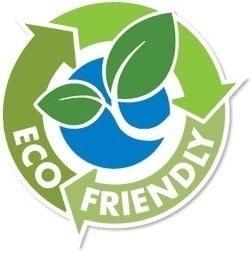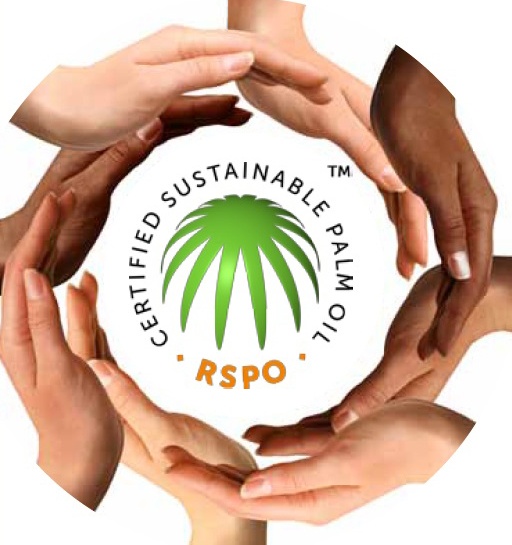Why sustainable palm oil?
Palm oil is a versatile vegetable oil, which has been processed in thousands of products. The production of palm oil is often paired with major problems for humans and the environment. For the construction of plantations lots of tropical forest was cut. The plantations cause lots of pollution, the working conditions are poor and the rights of indigenous peoples are often flouted. Friends of the Earth wants the Dutch government and companies to get involved in ensuring that someone puts an end to this. 
The palm grows around the equator in South East Asia, Latin America and Africa. The largest producers of palm oil are Indonesia and Malaysia; together they provide 84 per cent of the supply on the world market. In Indonesia and Malaysia vast areas have been stripped off rain forest in order to construct palm oil plantations. The last decennia the palm oil area has grown from 2 million hectare to over 5 million in Indonesia. The Indonesian rain forest is home to a great amount of species: 10% of all plant species worldwide; 12% of all mammalian species; 16% of reptiles and 17% of all birds. According to the Food and Agriculture Organization of the United Nations, the forest cover has declined sharply in Indonesia and Malaysia. If this trend continuous, it is estimated that all rainforest on the Indonesian islands of Sumatra and Kalimantan will be gone in the near future. Deforestation does not only endanger the biodiversity, but also threatens the culture and livelihoods of indigenous peoples. However, their voice is not heard when new palm oil plantations are in construction. The continuous boosting of biomass production in palm oil exporting economies, increase the irreparable damage they often inflict.
SoapQueen Europe
- The Online Soap Shop
-
WEBSHOP Products & Soap
- SALE 50% DISCOUNT
- MONTH OFFER 1 + 1 free
- Soap Base / Melt & Pour soap / Stephenson
- Basic Cream / Lotion / Butter / Gel
- Raw materials for Soap & Cosmetics
- Starter kits
- Raw materials for Melts
- Raw materials for Candles
- Cold proces soap - 100% natural
-
Soap & Bath Fizz Molds
- Soap molds - plastic
- Bath fizz molds
- Rubber molds
- silicone molds
-
First impression molds / silicone molds
- Alphabet
- Baby
- Flowers
- Trees & Leaves
- Wedding
- Animals
- Diverse
- Gems & Jewelry
- Angels, Cherubs & Wings
- Food
- Fairies
- Party
- Halloween
- Hearts
- Lace
- Christmas
- Beads
- Crosses
- Medaillons
- Pearl edges
- Easter
- Plaques
- Borders & Ropes
- Sport & Hobby
- Bows
- Teddy Bears
- Transport
- Valentine's Day
- Decorations
- Western
- Sea Creatures
- Sea Life
- Work and production equipment
- Packaging / Bottles / Jars
- Living room Reeds perfume
- Children's parties - DIY
- Digital Gift Voucher
- WHOLESALE Soap / Retail
- CHILDREN - Soap Making
- WORKSHOPS Soap Making
-
-
Inspiration & Ideas
- Movies from Customers
-
Recipes of customers
- recipe - Anti-Aging Cream
- recipe - Bath Butter / Sugar Rounds ( Scrub Soap )
- recipe - Bath Cookies
- recipe - Bath Melt
- recipe - Bentonite Hairmask
- recipe - Body Butter
- recipe - Body Cream with Orange
- recipe - Body melts
- recipe - Candylicious Soap
- recipe - Face Cream Bar
- recipe - Deodorant
- recipe - Death Sea Salt scrub
- recipe - Edible Bodybutter
- recipe - Face Cleansing Oil
- recipe - Hairwax Pomade
- recipe - Hand/ Feet Scrub
- recipe - Hand cream
- recipe - Clay Bar Facial Cleaner
- recipe - Latte Macchiato Soap
- recipe - Lavender Bath Bomb
- recipe - Lipbalm / Lipgloss
- recipe - Lipscrub
- recipe - Air freshener
- recipe - Luxury Shaving Soap
- recipe- Massage Bonbons
- recipe - Massagebar
- recipe - Massage candles
- recipe - Natural Flowery Shampoo
- recipe - Natural Fruity Shampoo
- recipe - Natural Spicy Shampoo
- recipe - Natural shampoo
- recipe - Parfumed powder
- recipe - Foaming Scrubsoap
- recipe - Scrubsalt
- recipe - Shampoo Bar
- recipe - Orange Salt Soap
- recipe - Orange Cinnamon Soap Pie
- recipe - Whipped Cream Frostings
- recipe - Slimy washing gel
- recipe - Soy Wax Melts
- recipe - Brine soap ( soleseife cold proces )
- recipe - Solid Perfume
- recipe - Sugarscrub
- recipe - Sugarscrub Soap
- recipe - Solid Sugarscrub
- recipe - Foot Soap
- recipe - Luxury Clay Shaving Foam
- recipe - Soft Facial Scrub
- SoapQueen TV - YouTube
- GENERAL INFO - DISCOUNT
- CONTACT - INFORMATION
My Account
Login
Forgotten your password?
No account?
With an account you can order faster and you have an overview of your previous orders.
Create an Account






